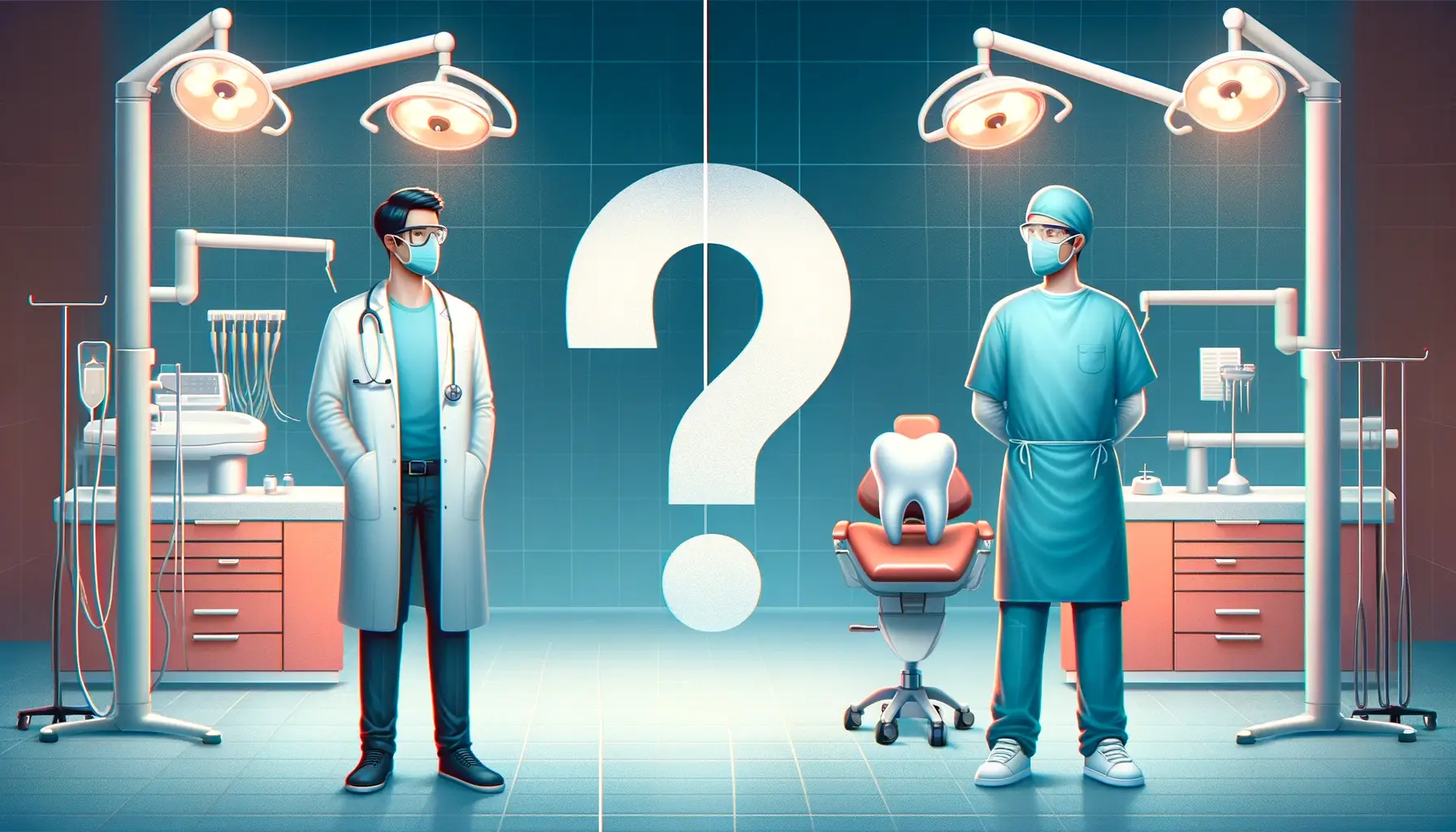Are you planning to pursue a bright career in the medicare industry? A degree in MBBS and BDS are the most lucrative career options that young aspirants can opt to enter in the field of healthcare.
Both the courses, MBBS & BDS, are unique in their own way, bringing to the students the most foundational courses on medical education followed by key focus on different specializations and branches. Let’s delve deeper and understand which one is a better course – MBBS vs BDS to add an edge over the competition.
MBBS Vs BDS: The Course Overview
Bachelor of Medicine and Bachelor of Surgery (MBBS) is a popular professional degree program to be pursued after class 12th to make a rewarding career in the medical science field. It is the five years and six months graduation course with a mandatory one year of rotational internship at any certified hospitals, health centres, and health camps organised by non-profit organisations (NGOs). Pursuing MBBS + MD+ super-specialisation would result in 5.5+3+2= 10.5 years of academic years.
To get admission to an MBBS college, one has to qualify in an entrance exam like NEET, AIIMS, or JIPMER. For BAMS as well as BDS too, one has to clear NEET entrance exam.
The eligibility criteria include Biology, Physics, and Chemistry subjects in class 12th, must have cleared class 12th, and age and percentage criteria too which might vary each year. Once the student has cleared the entrance test, they can attend the counselling and select from the colleges available. The government college fees can vary from INR 11,000 to INR 8 lacs, whereas private colleges charge in the range of 20- 80 lacs.
Bachelor of Dental Surgery (BDS) is one of the most promising career options in the medical industry after class 12th. It is a well-designed undergraduate program which is quite equivalent to the MBBS in the medical educational field.
All those students who opt to pursue a career in this course are nurtured to understand the foundation of the denture, dental problems and surgery. Like MBBS, the course duration of BDS course is also of the four-year academic education followed by the one year mandatory internship programme in dentistry education.

MBBS Vs BDS - Which one is a better career path
BDS Vs MBBS: Career & Job Scope
The eligibility criteria include Biology, Physics, and Chemistry as compulsory subjects in class 12th, the student must have cleared class 12th, and age and percentage criteria too which might vary each year. Once the student has cleared the entrance test, they can attend the counselling and select from the college available. NEET-UG, AIIMS, JIPMER are the common entrance tests which a student needs to clear to get admission in the college.
Once a student completes his/her BDS course successfully, they can get a BDS degree and start working as a BDS doctor or dentist. Also, getting a BDS seat is not as tough as the competition is low and it takes lesser time to complete a BDS degree than a MBBS degree.
The fees for the BDS course varies from INR 50,000 to INR 12 lacs depending on the college of admission. After completion of BDS, the student can choose to become a Dentist, Dental Surgeon, Endodontic, Oral and Maxillofacial Pathologist, Oral Surgeon, Orthodontic, and more; or open their own clinic or hospital after some years of experience.
After MBBS completion, students are supposed to participate in hands-on training in hospitals and outpatient departments. Students can also go for super specialization in a field or pursue MD/ MS degrees and be a Specialist Doctor, Physician, Surgeon, Medical Professor or Lecturer, Research Scientist, or setup own clinic/ hospital after some years of experience.
After at least one year of successful internship after MBBS, one can add the prefix “Dr” to one’s name. Both MD and MS have prospects, one who completes MS becomes a surgeon while the one who takes up MD is a physician.
MBBS Versus BDS: The Curriculum
In the MBBS course curriculum, an aspirant is required to study anatomy, physiology, and biochemistry followed by pathology, microbiology and pharmacology enabling the student to understand everything about the human body in depth. Also, the course curriculum has been designed to help students understand the different types of treatments available for common ailments by the end of the course.
Generally, the MBBS course is available in different types of specializations such as Anatomy, Dermatology & Venereology, Biochemistry, Medicine, Orthopaedics, Paediatrics, Psychiatry, Surgery, Anaesthesiology, Pathology, Microbiology, Physiology and more.
The basic course curriculum of BDS has been structured to help students gain maximum understanding about the teeth, oral cavity, maxillofacial region, and surrounding structures along with a very basic knowledge of different forms, functions and common ailments of the human body as a whole.
After completing this course, one will be able to provide dental treatment along with imaging, tissue graft, implants, laser surgery, Oral pathology, Periodontics, Orthodontics, Oral and Maxillofacial and trauma. Here’s the basic Syllabus of BDS offered by various universities and colleges in India.
Who is the Winner amongst MBBS and BDS courses?
Well, the graduation degree in both the courses MBBS and BDS open doors for a highly lucrative career. The only difference among these medical science programs is that the earning for MBBS doctors begins quite late in comparison to the dentists.


